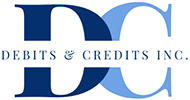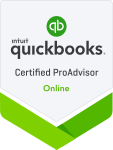Bookkeeping is an important part of running a small business in Canada. It can help you better understand your finances, save money, and ensure that you are filing your taxes correctly. In this guide, we’ll cover everything you need to know about bookkeeping for Canadian small businesses, from understanding the basics to exploring the best accounting software for small businesses.
What Is Bookkeeping?
Bookkeeping is the process of tracking and recording financial transactions. This includes recording income and expenses, reconciling bank accounts, invoicing customers, and more. It is also important to keep accurate and up-to-date financial records to ensure compliance with Canadian tax laws.
Bookkeeping can be done manually, or you can use accounting software to help automate the process. Whichever method you choose, it’s important to keep accurate records so that you can make informed decisions about your business.
Benefits Of Bookkeeping For Canadian Small Businesses
Bookkeeping is essential for any small business in Canada. It can help you better understand your finances, save money, and ensure that you are filing your taxes correctly. Here are some of the key benefits of bookkeeping for Canadian small businesses:
- Improved cash flow: Bookkeeping helps you track your income and expenses to ensure you’re always on top of your cash flow. This will help you manage your budget, plan for the future, and make sure you’re not overspending.
- Accurate tax filing: Bookkeeping can help ensure that you file your taxes correctly and on time. This will help you avoid fines, penalties, and any other issues that may arise from inaccurate tax filing.
- Easier decision-making: Bookkeeping helps you track your finances and make informed decisions about your business. You can easily see how much money is coming in and out and use that data to better manage your finances.
- More time for growth: Bookkeeping can help you save time and energy, so you can focus on growing your business. It can take a lot of time to manually track and record your finances, but with the right accounting software, you can automate the process and focus on what matters.
Bookkeeping For Canadian Small Business Tips And Best Practices
Bookkeeping for Canadian small businesses can be daunting, but it doesn’t have to be. Here are some tips and best practices to help you stay on top of your bookkeeping:
- Keep accurate records: It’s important to keep accurate and up-to-date financial records. This will help you stay organized and ensure that you’re filing your taxes correctly.
- Choose the right accounting software: Accounting software can be a great tool to help you automate the bookkeeping process. Look for software that’s easy to use and offers the features you need.
- Back up your data: Make sure to back up your data regularly, so you can easily recover your financial records if something happens.
- Automate where possible: Look for ways to automate as much of the bookkeeping process as possible. This will help you save time and energy, so you can focus on growing your business.
- Stay organized: Keep your financial documents organized, so you can easily find them when needed.
The Canadian Bookkeeping System
Bookkeeping for Canadian businesses is based on the double-entry bookkeeping system, an accounting system that tracks and records income and expenses in two different accounts. This system helps ensure accuracy and can help you stay on top of your finances.
The double-entry bookkeeping system is based on the three basic principles of accounting:
- Assets must equal liabilities plus equity
- Debits must equal credits
- All income and expenses must be recorded
By following these principles, you can ensure that your financial records are accurate and up-to-date.
Common Mistakes To Avoid When Bookkeeping For A Small Business
Bookkeeping mistakes can be costly, so it’s important to ensure your financial records are accurate and up-to-date. Here are some common mistakes to avoid when bookkeeping for a small business:
- Not keeping accurate records: Accurate and up-to-date records are essential for any small business. Make sure to keep accurate records of all transactions and ensure that your financial records are up-to-date.
- Not reconciling your bank accounts: Reconciling your bank accounts is important to ensure that your financial records are accurate. Take the time to reconcile your accounts regularly.
- Not using the right accounting software: Accounting software can help you automate the bookkeeping process and save you time and energy. Make sure to choose the right accounting software for your business.
- Not backing up your data: Make sure to back up your data regularly, so you can easily recover your financial records if something happens.
- Not keeping track of expenses: Make sure to keep track of your expenses and ensure they are accounted for in your financial records.
Best Accounting Software For Small Businesses
Accounting software can help you automate the bookkeeping process, saving time and energy. Here are some of the best accounting software for small businesses:
- FreshBooks: FreshBooks is a cloud-based accounting software that offers features like invoicing, time tracking, expense tracking, and more.
- QuickBooks: QuickBooks is one of small businesses’ most popular accounting software. It offers features like invoicing, expense tracking, and more.
- Xero: Xero is an easy-to-use accounting software that offers features like invoicing, bank reconciliation, expense tracking, and more.
- Wave: Wave is a free accounting software that offers features like invoicing, expense tracking, and more.
Free Accounting Software For Small Businesses
Some free accounting software options are available if you’re on a budget. Here are some of the best free accounting software for small businesses:
- Wave: Wave is a free accounting software that offers features like invoicing, expense tracking, and more.
- Zoho Books: Zoho Books is a free accounting software that offers features like invoicing, time tracking, and more.
- SlickPie: SlickPie is a free accounting software that offers features like invoicing, expense tracking, and more.
- Zip Books: Zip Books is a free accounting software that offers features like invoicing, time tracking, and more.
Bookkeeping For Beginners
Bookkeeping can be a daunting task, especially for beginners. So here are some tips for bookkeeping for beginners:
- Start with the basics: Learn the basics of bookkeeping, such as the double-entry bookkeeping system, before diving into more complex tasks like reconciling bank accounts.
- Use accounting software: Accounting software can help you automate the bookkeeping process, saving time and energy.
- Keep accurate records: Keep accurate records of all transactions and ensure that your financial records are up-to-date.
- Back up your data: Make sure to back up your data regularly, so you can easily recover your financial records if something happens.
- Ask questions: Don’t be afraid to ask questions if you’re unsure about something. There are plenty of resources available to help you understand bookkeeping.
How To Do Bookkeeping For A Small Business
Bookkeeping for a small business can be daunting, but it doesn’t have to be. Here are some tips for how to do bookkeeping for a small business:
- Get organized: Make sure to keep your financial documents organized, so you can easily find them when needed.
- Automate where possible: Look for ways to automate as much of the bookkeeping process as possible. This will help you save time and energy, so you can focus on growing your business.
- Reconcile your bank accounts: Reconciling your bank accounts is important to ensure that your financial records are accurate. Take the time to reconcile your accounts regularly.
- Track your expenses: Keep track of all of your expenses and ensure they are accounted for in your financial records.
- File your taxes on time: Make sure to file your taxes on time and accurately to avoid penalties and fines.
Conclusion
Bookkeeping is an essential part of running a small business in Canada. It can help you better understand your finances, save money, and ensure that you are filing your taxes correctly. In this guide, we’ve covered everything you need to know about bookkeeping for Canadian small businesses, from understanding the basics to exploring the best accounting software for small businesses.
Whether you’re a beginner or an experienced bookkeeper, following the tips and best practices outlined in this guide will help you stay on top of your bookkeeping and ensure that your financial records are accurate and up-to-date.
If you’re looking for more information about bookkeeping for small businesses, check out our other resources, such as Bookkeeping for Sole Props: 4 Steps and our guide to free accounting software for small businesses. Also, you can See our profile on DesignRush.


